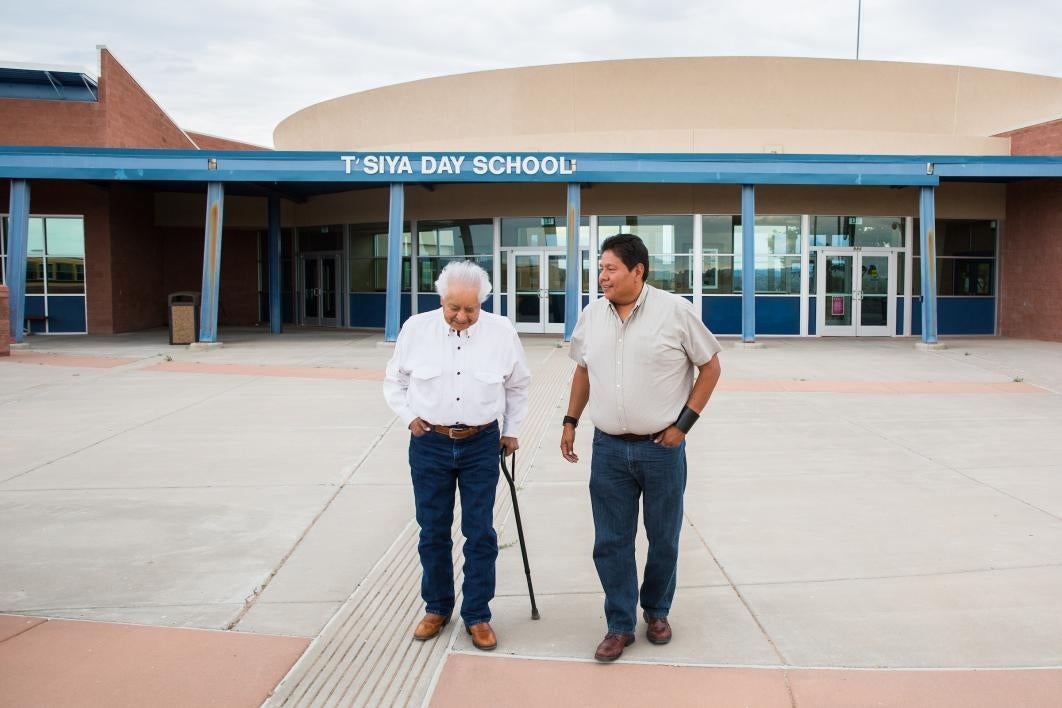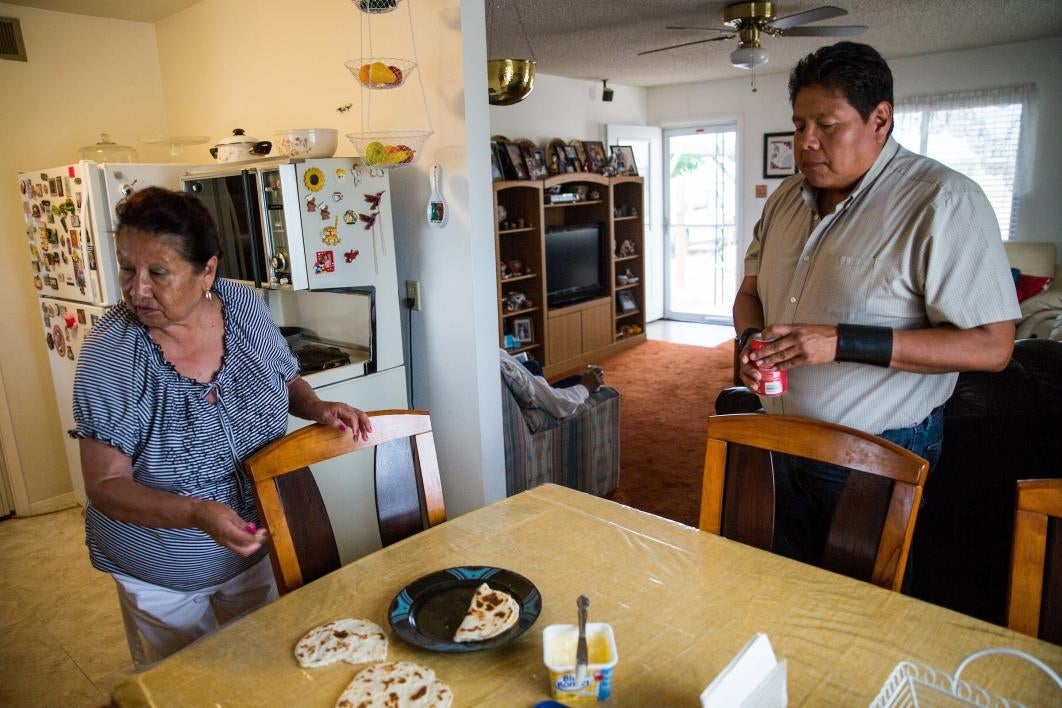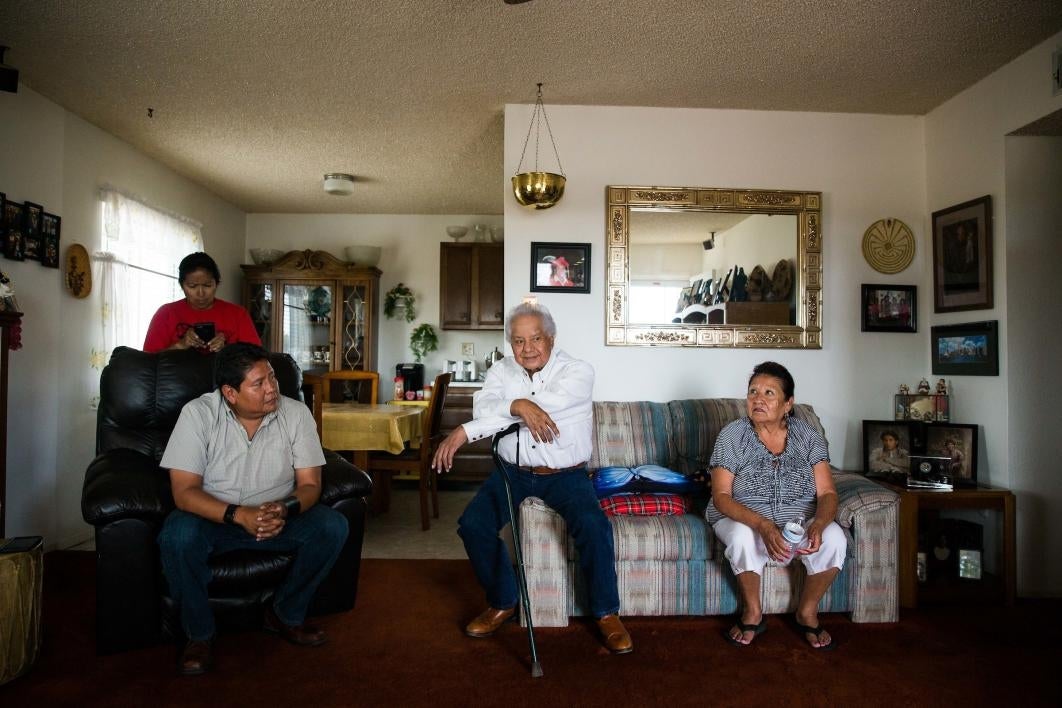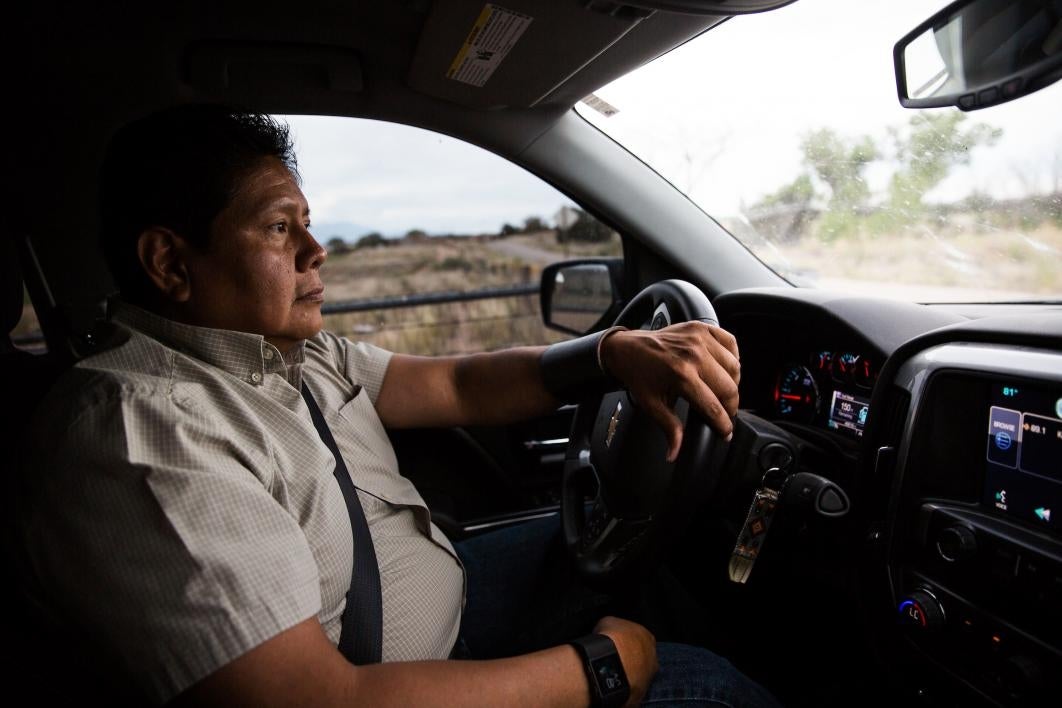Pueblo scholar expands political role

Editor's Note: This is the second in a two-part series following members of the first ASU Pueblo Indian Doctoral Cohort. The 10-member group — formed to address a glaring underrepresentation of Native American doctorates — graduated a year ago, and in the time since they’ve expanded leadership programs, women’s rights work and political efforts. ASU Now visited New Mexico to get a close-up view of their progress. Read the first story here.
Ken Lucero has been a policymaker, sheriff, accountant, board member, federal government official, health care advocate, contractor, mentor, jock, musician and dedicated son.
And now he’s a PhD.
Lucero said he never saw this latest role coming, but in retrospect, it couldn’t have been more clear.
“It’s always been ingrained in me that it’s about community first, family first, others first,” he said. “It took a few years and various jobs, but I’m finally in a place where I can be an effective advocate for change.”
Earning his doctorate as part of Arizona State University’s Pueblo Indian doctoral cohort has helped Lucero in his role as a special representative between New Mexico’s 19 Native American tribal lands and U.S. Sen. Martin Heinrich.
The intensive ASU program gave the 48-year-old Lucero a deeper and clearer understanding of the social, legal, economic and human rights inequities that American Indians face, which he says puts him in better position to seek solutions.
Lucero was selected for the program along with nine other Native American leaders with deep backgrounds — as teachers, advocates, lawyers and health care professionals — working on problems facing New Mexico pueblos. The three-year program involved studies in New Mexico, Arizona and around the world as the group traveled to work with other indigenous doctoral students, including the Sami in Norway and the Maori in New Zealand.
Launched in 2012 by ASU’s School of Social Transformation in partnership with the Leadership Institute at the Santa Fe Indian School, the program seeks to address a shortfall of Native American PhDs and to prepare graduates to more effectively address the range of needs of Pueblo residents.
Bryan McKinley Jones Brayboy, Arizona State University’s special adviser on American Indian Affairs and doctoral program co-director, said Lucero provided the cohort with an important perspective through his “wisdom, grounded-ness, strength mixed with humility and a focus on the future of Pueblos.”

A view East of Zia Pueblo in New Mexico. Photo by Deanna Dent/ ASU Now
Lucero says he inherited many of these traits from his father, Gilbert Lucero, a former three-term governor of the Zia Pueblo Tribe. The elder Lucero said he has long recognized potential in his son and that he has been preparing him for a leadership position. The former governor recalled thinking that “at some point in time, he’s going to be the kind of person that is needed here in the community.”
The doctoral program, Gilbert Lucero said, “was exciting for me when I learned about it.” He said it represents a development opportunity that could help improve conditions for the tribe now and in the future.
Located 35 miles northwest of Albuquerque, the Zia Pueblo is a remote enclave off a little-used stretch of Highway 550 tucked into the steep slopes and canyons of the Sierra Nacimiento Mountains.
The community looks much as it did generations ago. Mud adobes and small outdoor pottery ovens surround the 400-year old Our Lady of Assumption Catholic Church. The other structures are modest HUD homes, provided decades ago by the federal government. Horses roam freely, occasionally stopping drink from the Jemez River.
War, disease and droughts have threatened to wipe out the tribe several times, and its population dipped to 97 people nearly 100 years ago. Today, the Zia Pueblo boasts more than 800 members.
Lucero came of age in the 1970s at the end of a national Native pride campaign, led by American Indian Movement. But he wasn’t concerned with such matters back then, he was consumed by rock music, TV and sports.
Between garage band rehearsals, school dances and football games, however, Lucero’s father would remind him that the tribe could call at any point.
“My dad,” Lucero said, “was essentially saying, ‘Have fun now, son. But when you turn 18, it’s time to become a man.’”
The call didn’t come right away, and Lucero went out to find himself. He attended the University of New Mexico, but dropped out in 1987 and bounced around. He worked a state fair ticket booth, sold mutual funds door to door and worked at a bank.
Lucero said that by 1999 he began to mature and the tribe asked him to serve as a governor’s aide during a time when his father wasn’t in office. He said he kept his job as a retail accountant at Wells Fargo Bank but worked for the tribe in his downtime.
The next year, he took a full-time administrative position in tribal government, and his first assignment build a new elementary school.
Lucero, as project manager, guided the planning and construction of the $7.6 million T'syia Day School, which opened in 2002. The 18-month-long project finished on time and $1.2 million under budget. With the extra funds, he added a courtyard, assembly area and full-sized gym.
From there Lucero was responsible for grants and contracts with private, state and federal agencies — a job he worked for eight years.
“Ken always tries to incorporate integrity, honesty and fairness in all of his decision-making,” said Venita Yawakie, Lucero's girlfriend.
In February, just months before graduating with his doctorate, Lucero took a position as a tribal liaison for New Mexico’s junior U.S. senator. Lucero helps draft proposals on issues from economic development to public safety. He also has been involved in health care policy work, drawing on his experience as a U.S. Department of Health and Human Services board member.
But that’s just his day job. After work, he returns to the pueblo and reports for a shift as a community sheriff. Lucero said he patrols the community five days a week, keeping the peace and responding to emergency calls.
He also mentors young people as others mentored him.
“I remind them as my father did me that even though they might not see it now, one day they’ll be role models and future leaders of this community,” Lucero said. “When they know they are cared for and there are expectations of them, they act more responsibly.”
Lucero went back to the University of New Mexico in 2010 and obtained his bachelor’s degree in Native American Studies.
From there, he entered the three-year ASU fast-track program that allowed him to earn a masters and doctorate, which has had a benefit already, he said.
“When you’re out in another community or at a meeting and you’re acknowledged as a doctor it’s helpful,” Lucero said. “People will say, ‘Oh, Dr. Lucero, I guess I’d better listen to what he has to say.’”
Lucero said even though it took him a while to emerge as a community leader, he doesn’t regret the past.
“My life experiences, serving my tribe and having the support of my family gave me the wherewithal to complete my PhD,” he said. Without those experiences, “I wouldn’t be where I am today.”






